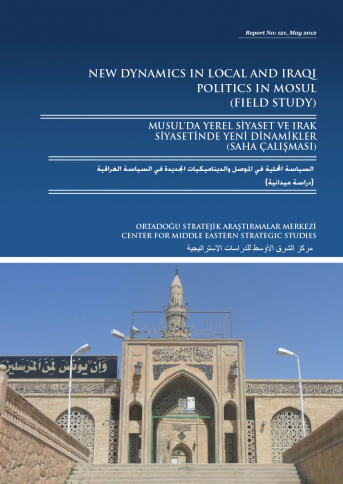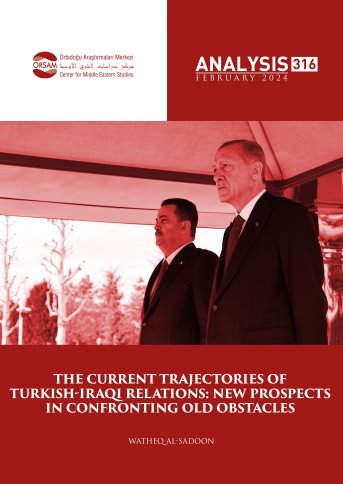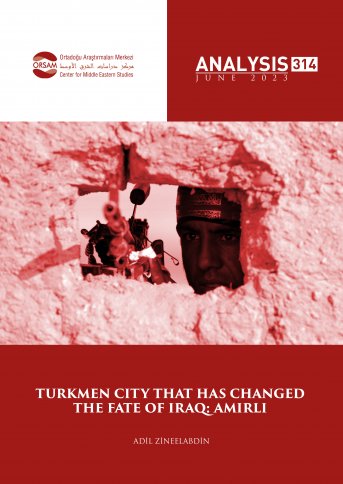
New Dynamics in Local and Iraqi Politics in Mosul (Field Study)
* The population of the province is estimated to be some 3,5 million people, and approximately 2 million of the population is estimated to live in central Mosul.
* In addition to the Sunni Arab majority, there are also Kurdish, Turkmen, Christian, Shabak and Yezidi communities.
* The root cause of the disputes in Mosul is Kurds' demand for the districts of Mosul such as Akre, Shekhan, Sinjar, Tel Kaif and Al-Hamdaniye to pass under the administration of Kurdish Regional Government.
* Mosul is still one of the provinces with biggest potential of political tension and conflict in the post-election period.
* Seven out of eleven districts of Mosul, which is the second largest province of Iraq, are included in disputed territories.
* The name of Mosul is almost identified with the Sunni resistance and al-Qaeda.
* The Iraqi central government and peshmergas of the Kurdish Regional Government come into conflict from time to time.
* Besides its general security problems, Mosul is also a province with many ethnic, religious and sectarian conflicts.
* Due to the fact that Sunnis did not take part in political process by protesting both the general politics in Iraq and local politics in Mosul, it is known that Kurdish groups were active in Mosul until the 2009 elections.
* In addition to the fact that Shiite groups increasingly strengthened the general dominance in Iraqi politics, the strides they made towards monopolizing Prime Minister Nouri al-Maliki's power have approached Kurdish and Sunni groups to each others.
* The local politics is such as to shape the basic dynamics in Iraq. One of the most concrete examples of this has been observed in Mosul.







